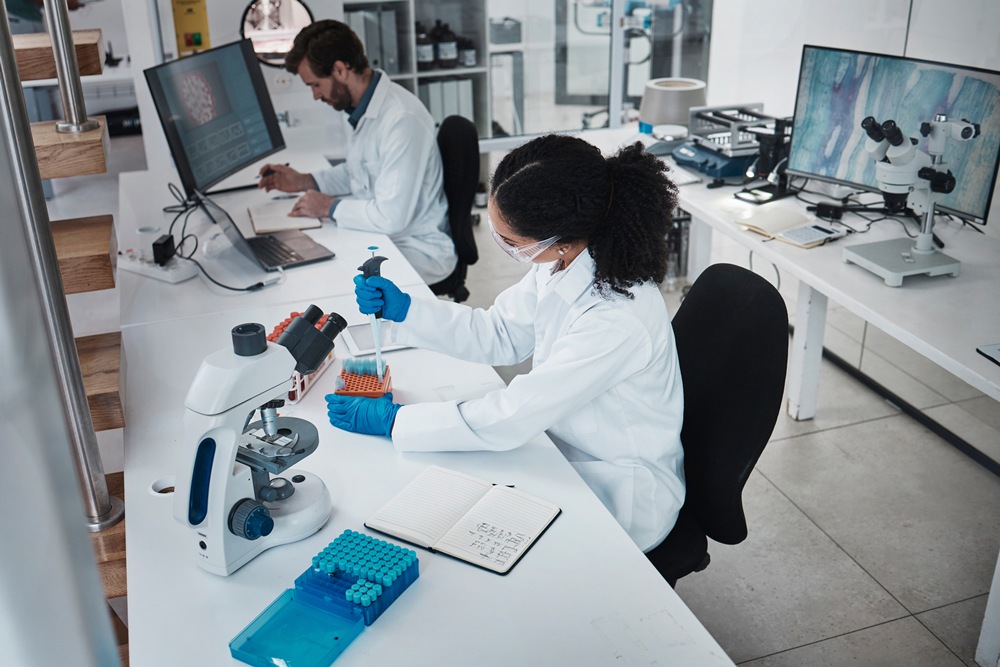Implementing a unified LIMS for Cheshire and Merseyside Pathology Network

The Cheshire and Merseyside Pathology Network (CAM) is delivering one of the NHS’s most ambitious diagnostic transformations.
Serving 2.7 million patients across five NHS Trusts, the programme is replacing multiple legacy Laboratory Information Management Systems (LIMS) with a single, unified solution: Evolution vLab from Magentus.
This shift will consolidate services into three laboratory hubs operating as one network.
Once operational, the new system will cut down on duplicate testing, shorten result turnaround times, and bring consistency to reporting across all sites.
Patients will benefit from faster and more reliable results, regardless of where their test is taken or processed.
CAM and Magentus are leading the programme together, with NHS teams and supplier experts combining clinical insight and digital expertise to redesign the services at a regional scale.
“We’re embracing the complexity of this transformation,” said Christine Usher, Programme Director for CAM.
“With Magentus, this programme is disrupting traditional models and showing what’s possible when NHS teams and suppliers work together as a single delivery team.”
Inspiring Model of Collaboration
The programme has involved Magentus subject matter experts contributing nearly 100 hours of co-design workshops and 20 days of on-site visits, along with regular Clinical Reference Group meetings.
All of this helps to ground the system design in real laboratory experience, with decisions shaped by the people who will use it every day.
“We, as a programme, have tried to instil an ethos of shared responsibility,” said Rebecca Whitting, Programme Manager.
“Supplier and customer, demonstrating a combined front. One party cannot succeed without the other.”
Detailed mapping exercises and direct observation in labs have all guided tailored workflow design.
Data Capture Worksheets have helped identify any inefficiencies and opportunities for improvement.
Clinical safety is central to every decision, ensuring the system is safe and effective from day one.
Staff engagement has been another priority throughout, ensuring that everyone understands how the new system will support their work.
Standardising for Consistency
Another major focus has been harmonisation between Trusts and sites.
Test catalogues, coding and workflows are being aligned across all five Trusts to support the single network model.
This approach makes results comparable across the network, regardless of where a test is performed.
“A successful LIMS implementation requires true collaboration from all stakeholders,” said Tracey Cole-Wetherill, Programme Director for the Cheshire and Merseyside Diagnostic Programme.
“There is no them and us. We are all equally responsible for successes and challenges, and building a high-trust, values-driven culture has been vital.”
Governance and Innovation
CAM’s governance model brings clarity and clinical ownership.
The Programme Board provides executive oversight, while the Project Delivery Group manages day-to-day coordination. Quality and safety are overseen by Clinical and Operational Reference Groups, supported by working groups focused on design and change readiness.
On the technical side, the programme is laying solid foundations for future innovation. Interfaces with local and national systems, including NHS Spine, have been mapped.
Plans are in place to connect to the National Disease Registration Service API, automating Cancer Outcomes and Services Dataset reporting.
The system is hosted in a secure AWS cloud environment that meets NHS requirements for uptime and resilience.
It has passed independent cybersecurity assessments. Middleware will allow technical validation of results to be handled separately from clinical validation, giving the network more flexibility.
Preparing for Go-Live
As the programme moves into the build and implementation phase, momentum is strong.
New functionality will be released in stages, interfaces will be tested with around 150 analysers and middleware systems, and data migration will be carefully managed to ensure a smooth transition.
A demo environment is available throughout the build phase, giving lab staff a chance to explore the system ahead of formal testing.
Training will follow a “Train the Trainer” model, embedding knowledge across all sites and helping staff feel confident from day one.
A Model for the NHS
The CAM programme is already being widely recognised as an ideal model for how these kinds of large-scale NHS digital programmes can be delivered.
“The LIMS programme is a great example of how we can drive transformation through shared vision and mutual trust,” said Malcolm Gandy, Director of Informatics at Mersey and West Lancashire Teaching Hospitals NHS Trust.
“What’s made this programme stand out is the genuine engagement across clinical, operational and digital teams.”
For Magentus, CAM shows what’s possible when technology is shaped by real-world practice and delivered through trusted partnership.
“This is a programme built on trust and shared responsibility,” said Marlen Suller, Managing Director of Clinical Diagnostics EMEA at Magentus.
“By working as one team, we’re building a system that supports better care for every patient.”





